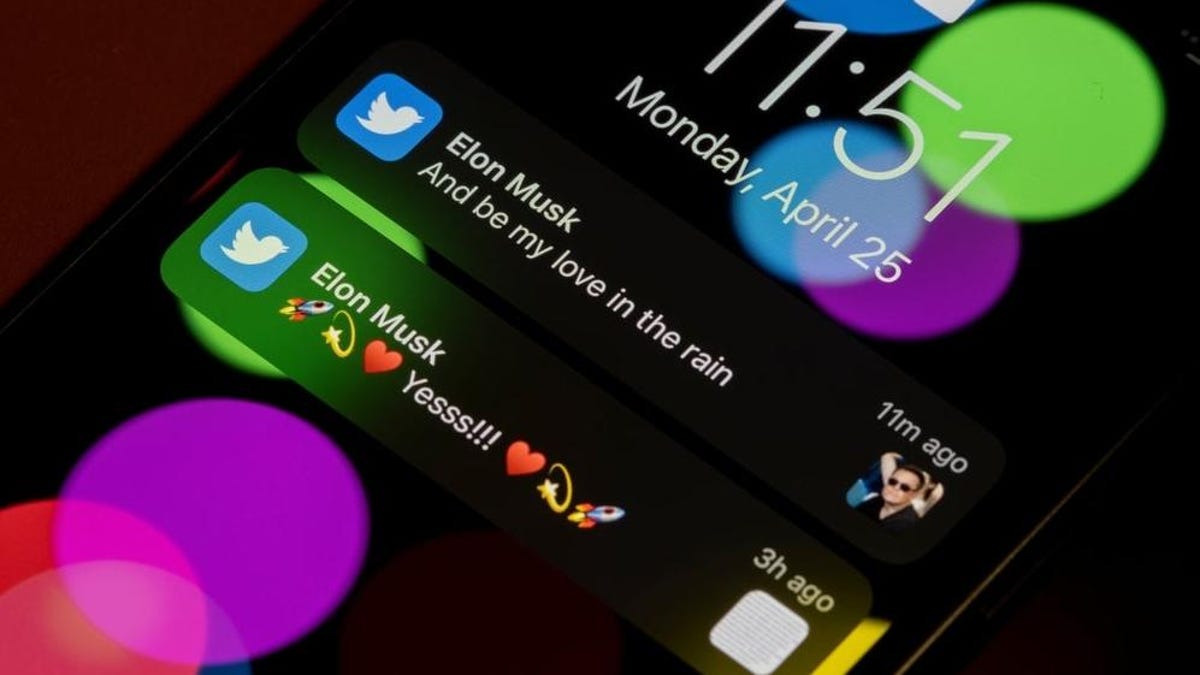iPhone apps including Facebook, LinkedIn, TikTok, and X/Twitter are skirting Apple’s privacy rules to collect user data through notifications, according to tests by security researchers at Mysk Inc., an app development company. Users sometimes close apps to stop them from collecting data in the background, but this technique gets around that protection. The data is unnecessary for processing notifications, the researchers said, and seems related to analytics, advertising, and tracking users across different apps and devices.
It’s par for the course that apps would find opportunities to sneak in more data collection, but “we were surprised to learn that this practice is widely used,” said Tommy Mysk, who conducted the tests along with Talal Haj Bakry. “Who would have known that an innocuous action as simple as dismissing a notification would trigger sending a lot of unique device information to remote servers? It is worrying when you think about the fact that developers can do that on-demand.”
These particular apps aren’t unusual bad actors. According to the researchers, it’s a widespread problem plaguing the iPhone ecosystem.
This isn’t the first time Mysk’s tests have uncovered data problems at Apple, which has spent untold millions convincing the world that “what happens on your iPhone, stays on your iPhone.” In October 2023, Mysk found that a lauded iPhone feature meant to protect details about your WiFi address isn’t as private as the company promises. In 2022, Apple was hit with over a dozen class action lawsuits after Gizmodo reported on Mysk’s finding that Apple collects data about its users even after they flip the switch on an iPhone privacy setting that promises to “disable the sharing of device analytics altogether.”
The data looks like information that’s used for “fingerprinting,” a technique companies use to identify you based on several seemingly innocuous details about your device. Fingerprinting circumvents privacy protections to track people and send them targeted ads
[…]
For example, the tests showed that when you interact with a notification from Facebook, the app collects IP addresses, the number of milliseconds since your phone was restarted, the amount of free memory space on your phone, and a host of other details. Combining data like these is enough to identify a person with a high level of accuracy. The other apps in the test collected similar information. LinkedIn, for example, uses notifications to gather which timezone you’re in, your display brightness, and what mobile carrier you’re using, as well as a host of other information that seems specifically related to advertising campaigns, Mysk said.
[…]
Apps can collect this kind of data about you when they’re open, but swiping an app closed is supposed to cut off the flow of data and stop an app from running whatsoever. However, it seems notifications provide a backdoor.
Apple provides special software to help your apps send notifications. For some notifications, the app might need to play a sound or download text, images, or other information. If the app is closed, the iPhone operating system lets the app wake up temporarily to contact company servers, send you the notification, and perform any other necessary business. The data harvesting Mysk spotted happened during this brief window.
[…]
Source: iPhone Apps Secretly Harvest Data When They Send You Notifications, Researchers Find

Robin Edgar
Organisational Structures | Technology and Science | Military, IT and Lifestyle consultancy | Social, Broadcast & Cross Media | Flying aircraft

